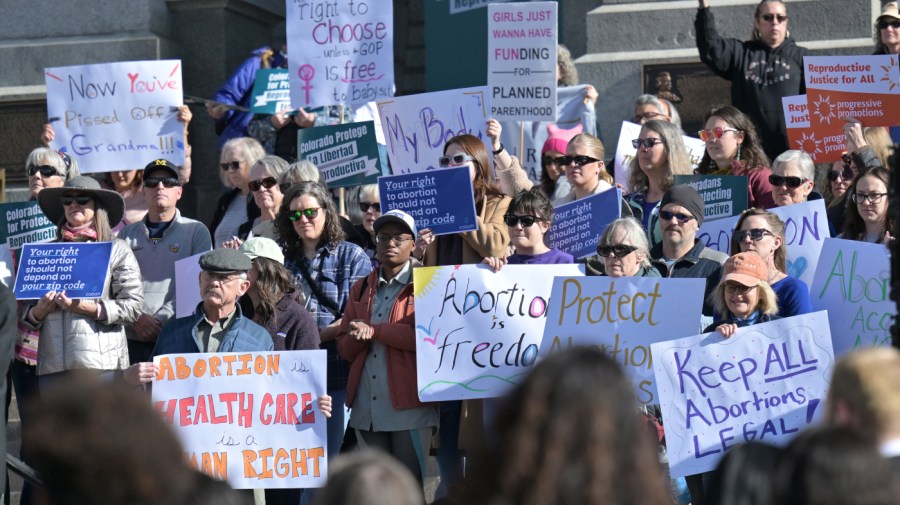
A Colorado reproductive rights campaign announced Friday it had surpassed the necessary number of signatures to have a measure added to the November ballot enshrining the right to an abortion into the state’s constitution.
The Coloradans for Protecting Reproductive Freedom coalition announced it had exceeded its goal of collecting 185,000 signatures, securing more than 225,000. The campaign needed 124,238 signatures to qualify.
However, the campaign must also have 2 percent of its total registered voters in each of Colorado’s 35 state senate districts. Three districts remain unaccounted for, with the campaign saying it needs less than 100 signatures to complete this goal.
The proposed initiative would add a change to the Colorado state constitution “recognizing the right to abortion, and, in connection therewith, prohibiting the state and local governments from denying, impeding, or discriminating against the exercise of that.”
Since the Supreme Court’s Dobbs decision in 2022, state voters have consistently voted to pass measures ensuring abortion access. Ohio voters approved a constitutional amendment last year that ensures abortion access.
“This momentous campaign milestone means Colorado voters are one step closer to seeing a constitutional amendment on the November 2024 ballot to protect abortion from government interference,” the campaign said in a statement. “This announcement comes just a few days after Colorado’s neighboring state, Arizona, had its Supreme Court uphold an 1864 law banning abortion, a law enacted when Arizona was still a territory.”
A similar ballot measure ensuring the right to abortion may be on the Arizona ballot in November. The organization leading the effort, Arizona for Abortion Access, said last week that it had collected more than enough signatures for the ballot.
Arizona inflamed the national abortion debate this week when its state Supreme Court upheld an 1864 law essentially banning the procedure.
Abortion remains legal in Colorado with no current restrictions based on gestational duration. In 2022, the Colorado General Assembly passed a law declaring “every pregnant individual has a fundamental right to continue the pregnancy and give birth or to have an abortion.”
“Abortion may be legal in Colorado—and that’s due to our leadership passing the Reproductive Health Equity Act in 2022 to codify a person’s fundamental right to make reproductive health-care decisions—but statutory protections do not mean we are any safer from government interference than Arizona is,” Dusti Gurule, president and CEO of the Colorado Organization for Latina Opportunity and Reproductive Rights and co-chair of the campaign said in a statement.














